I'm recording test scenarios via the JMeter recorder (without having HTTP Header Manager) and I have noticed that, for example, I have a sampler which holds header value local:81/web/eprocess/login.aspx. I'm not even using that port anymore and there is another part from the URL that is no longer the same. Anyway my scripts seem to work no matter that. How is this possible?
Next, I added a HTTP Header Manager and added some of the values that exist in most of the headers to the Header Manager. I then commented all of my default headers and the scripts seem to work again (no matter the default headers are sending values which doesn't exist in the HTTP Header Manager - scripts still work - how?
My main question is: What is a the good way to create long-term usable scripts with the host, port or even other information from the headers changing?
Is it better to leave the headers no matter if they hold incorrect information (different ports different application specific stuff like document IDs task IDs and more) or create a HTTP Header Manager and remove all other headers which contain some UNIQUE to some samplers values (but still work without sending those values). Here is a attachment of the HTTP Header Manager:
There is a random header which works just fine no matter I'm not even using this specific port anymore and the did=2860 number is around 5000 now but still works.
Also other values mismatch from the Header Manager values and if I comment this header it still works no matter Header Manager doesnt contain those values.

